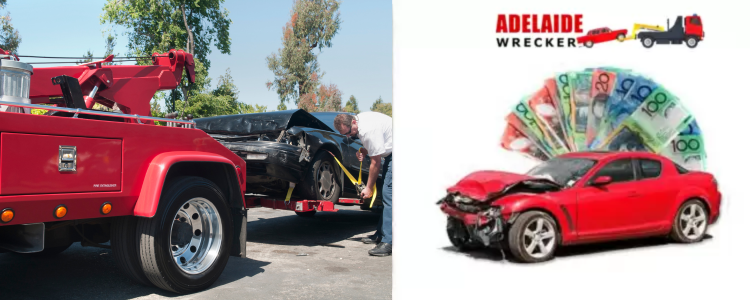When it comes to getting rid of an old or damaged car, car wrecking services often come up as a viable option. However, one of the first questions that pop into mind is: how much does car wrecking cost, and more importantly, is it worth the investment?
In this blog post, we will highlight the intricacies of car wrecking costs and assess their value to help you make an informed decision.
Understanding Car Wrecking Costs
Car wrecking, also known as auto salvaging, involves dismantling old, damaged, or end-of-life vehicles for parts and scrap metal. The cost of car wrecking services can vary widely based on several factors:
- The Vehicle’s Condition: The more intact parts a vehicle has, the higher its value as these parts can be resold. Conversely, a car that’s heavily damaged may have a lower value.
- Make and Model: Some vehicle models have parts that are in high demand, potentially increasing the value of the car.
- Market Demand for Scrap: The price of scrap metal fluctuates based on market demand, affecting how much you can earn from wrecking your car.
- Location: Towing costs and the proximity to the wrecking yard can also influence the overall cost.
Is It Worthwhile?
Now, to address the critical question: is car wrecking worth it? Here are a few points to consider:
- Eco-Friendly Disposal: Car wrecking is an environmentally responsible way to dispose of an unusable vehicle. It ensures that hazardous materials are safely removed and recyclable parts are reused.
- Instant Cash: Many car wrecking services offer instant cash for your vehicle. This is particularly beneficial if the car is no longer operational or safe to drive.
- Freeing Up Space: Wrecking your old car frees up garage or yard space, which can be a significant relief, especially if the vehicle is an eyesore.
- Cost-Effectiveness: In most cases, car wrecking services, including towing, are free. Some companies even pay you for the vehicle, making it a financially sound option.
Maximizing Value From Your Wrecked Car
Understanding the worth of your car in its current state is crucial. While some might see a wrecked car as merely scrap, professional car wreckers view it as a collection of valuable parts and materials. This perspective can significantly influence the cost-effectiveness of car wrecking.
How To Get The Best Deal
- Shop Around: Don’t settle for the first offer. Get quotes from multiple wreckers to ensure you’re getting a fair price for your vehicle.
- Know Your Car’s Value: Have a rough idea of your car’s worth. Check online for the value of similar models in similar conditions.
- Negotiate: Use your knowledge to negotiate with the wreckers. If you believe your car is worth more than the offered price, don’t hesitate to discuss it.
- Understand the Towing Costs: Some wreckers offer free towing, while others may charge for it. This cost can affect the overall value you get from wrecking your car.
Environmental Impact and Regulations
Car wrecking is not just a financial transaction; it’s an environmentally significant one. Wreckers follow strict regulations to ensure hazardous materials, like oil and battery acid, are disposed of safely, preventing environmental contamination.
Furthermore, by recycling usable parts, car wrecking contributes to a circular economy, reducing the need for new part manufacturing and its associated environmental impact.
Conclusion
The cost of car wrecking can vary, but it often leans towards being a financially and environmentally sensible choice. If you have a car that’s beyond repair or not worth the cost of fixing, car wrecking can be a lucrative and responsible way to handle the situation. Remember to research and choose a reputable car wrecking service to ensure you get the best deal and service.


